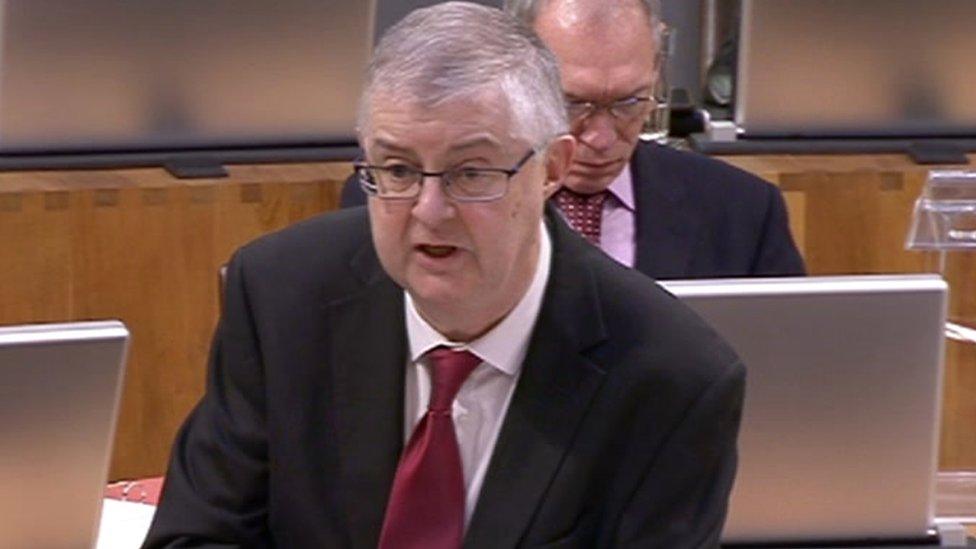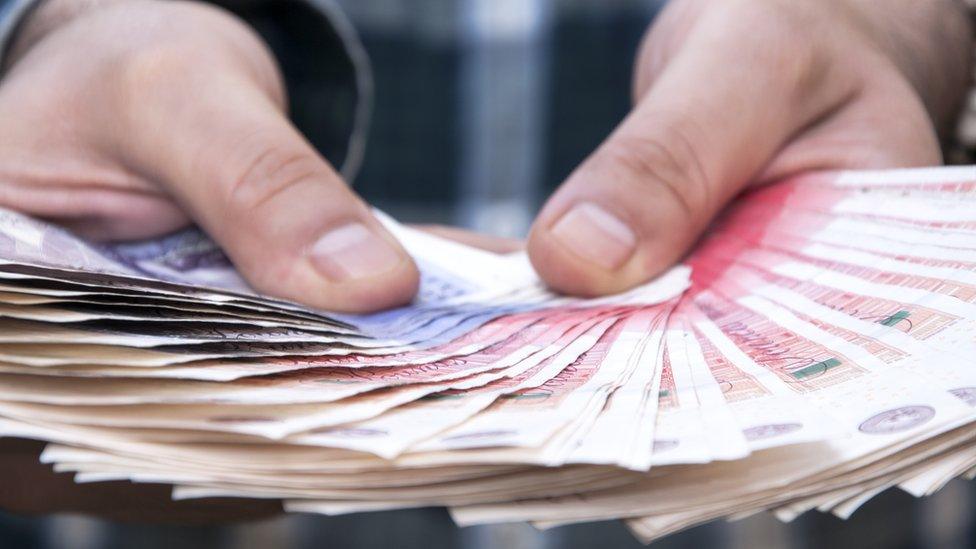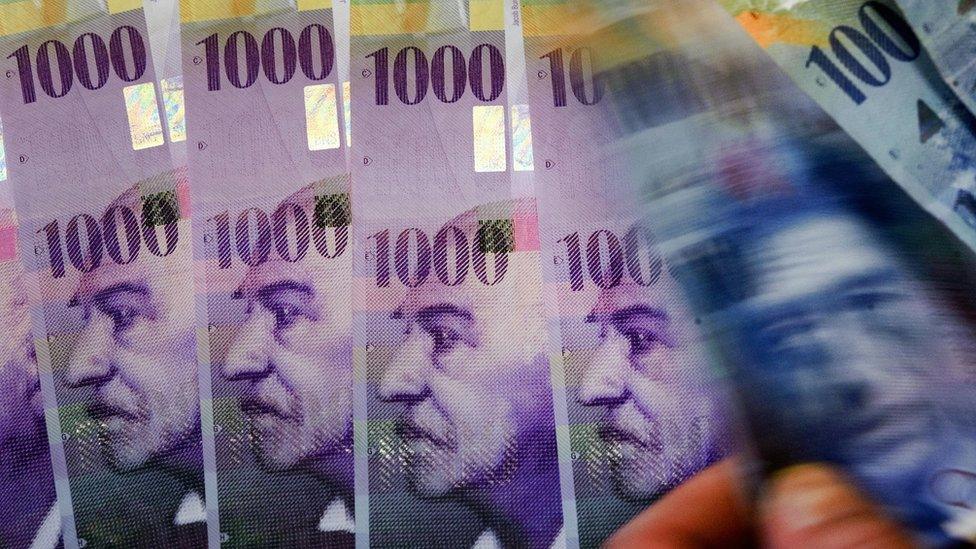Universal basic income an attractive idea, Mark Drakeford says
- Published

Mark Drakeford said such a policy would prompt accusations of "doling out pay for no work"
A "basic income" paid to everyone could help tackle poverty and inequality, according to the finance secretary.
It would be paid without any requirement to work and regardless of income from other sources.
Mark Drakeford said the idea was "attractive" but said politicians would have a "job" to convince the public.
He promised to monitor experiments in Glasgow and Fife but said there were doubts over whether Welsh ministers had the power to introduce such a system.
Mr Drakeford was responding to a question in the Senedd from Plaid Cymru finance spokesman Adam Price.
The Green Party and the trade union Unite have endorsed versions of the basic income.
In 2016, the RSA think tank proposed a basic income of £3,692 for people aged between 25 and 65, using data for taxes and benefits from 2012-13.

Universal basic income

Paid without any need for work
Paid irrespective of any income from other sources
Additional earnings would be subject to income tax
UK Green Party advocated similar "Citizen's Income" at 2015 election, external
Swiss voters overwhelmingly rejected a proposal to introduce a guaranteed basic income for all, in June
Unite, Britain's largest trade union, passed a motion endorsing basic income at its 2016 policy conference, external

Mr Drakeford told AMs on Wednesday that no local council had contacted Welsh ministers seeking backing for a basic income pilot.
"Nevertheless I intend to monitor the progress of the feasibility work currently being carried out in Fife and Glasgow," he said.
"And while there are clear competence questions to be addressed here, UBI [Universal Basic Income] has the potential to make a significant contribution to addressing poverty and inequality.
"Were we to move ahead on it we would face headlines of the sort the Sun newspaper used when reporting the Glasgow experiment, saying it was 'doling out pay for no work even for people who have a job'.
"So the idea, while attractive in the way that it can simplify and support people who currently have to rely on a very complex set of part-time work, part-time benefits and so on, the political world will face a job of convincing the public."
A Welsh Conservatives spokesman said: "This well-intentioned but expensive idea, raises serious questions - not least because most estimates suggest that the basic rate of income tax would need to more than double to pay for it.
"This could also have the unforeseen consequence of stifling incentive to take extra work, with devastating consequences for the economy."
- Published15 July 2016

- Published5 June 2016

- Published16 December 2015
